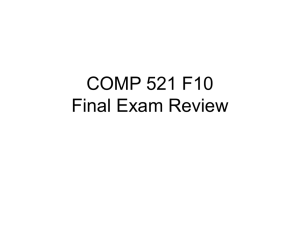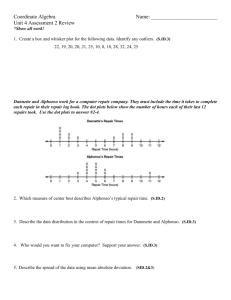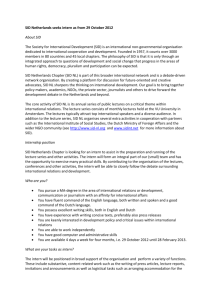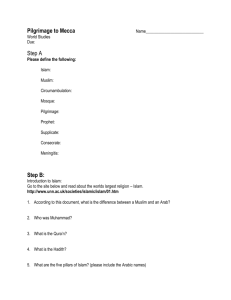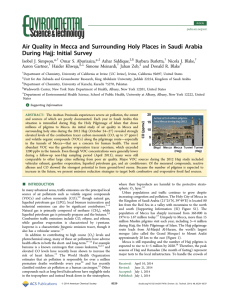The influence of Ilkhan's policies on the transition of the marine and
advertisement
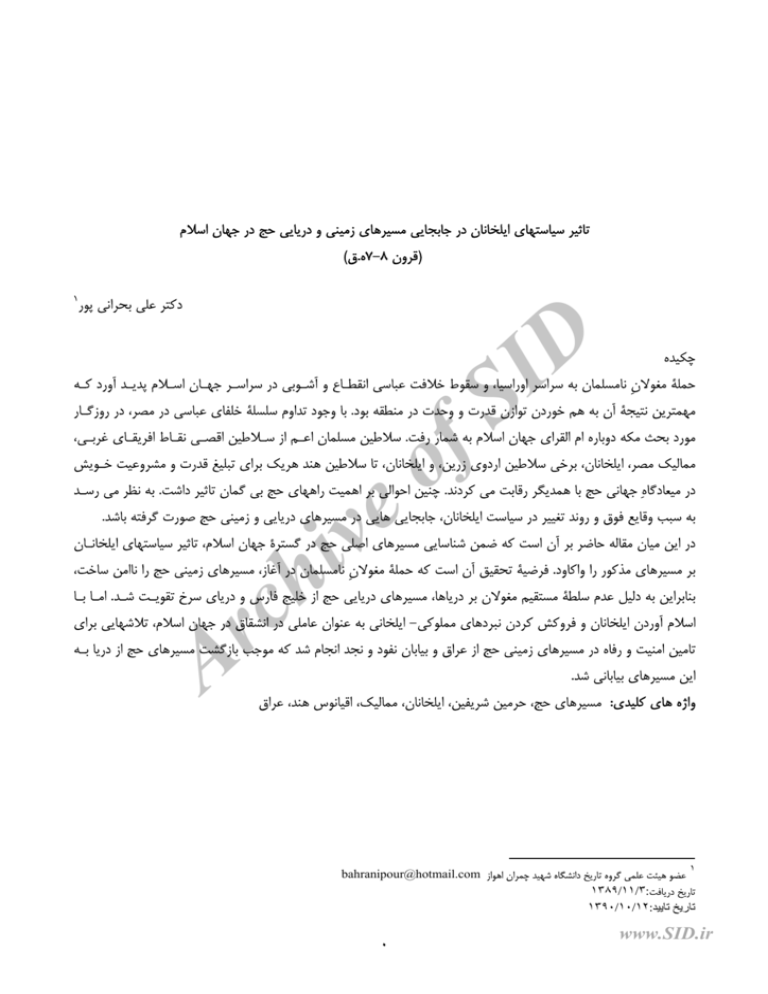
D I S f o e v i h c r A bahranipour@hotmail.com www.SID.ir D I S f o e v i h c r A Cosmopolitan Metropolis www.SID.ir D I S f o e v i h c r A www.SID.ir D I S f o e v i h c r A Teixeira,O. p. Cit. p. - www.SID.ir D I S f o e v i h c r A king Hetum II,Chronicle,trans. and ed. Robert Bedrpsian,New Jersey . , fragment. . www.SID.ir D I S f o e v i h c r A www.SID.ir D I S f o e v i h c r A www.SID.ir D I S f o e v i h c r A www.SID.ir D I S f o e v i h c r A www.SID.ir D I S f o e v i h c r A www.SID.ir Hugh Kennedy, An historical atlas of Islam, Leiden: Brill, , P. D I S f o e v i h c r A www.SID.ir D I S f o e v i h c r Toyo Gakuho ,vol . ,no - ,( ) Al-Sawafi "The history of Kilwa. Edited from an Arabic MS.by S.Arthur Strong" Journal of the royal Asiatic society of Great Britain and Ireland, Barbossa, Duarte,( A ) A description of the coasts of East Africa and Malabar, Henry E. J. Staneley (trans.), London: Hakluyt Society,. Hetum II Chronicle, Robert Bedrosian (transl. and ed.), New Jersey. Kennedy. Hugh, An historical atlas of Islam, Leiden: Brill, . Teixira. Pedro, the travels of Pedro Teixira with his Kings of Hormuz and Extracts from His "Kings of Persia" trans. and ed. William f. Sinclair, London: Hakluyt Society , Abstract www.SID.ir The influence of Ilkhan's policies on the transition of the marine and land routs of Hajj pilgrimage in the Muslim World Ali Bahranipour Shahid Chamran University of Ahvaz Mongols invasions throughout Eurasia and the collapse of Abbasid Caliphate caused an intercept and chaos in all over the Muslim World, and unbalanced the power and the unity in the Middle East territory. Ilkhan's conversion toward Islam seems to be a solution to the problem of balance and the unity, but the enduring Ilkhanid-Mamuk wars were the main obstacle for the Muslim world unity. Although the Abbasid caliphate dynasty continued its existence in Cairo, Egypt, but Mecca was the main Metropolis in the Muslim World. Because Abbasid Baghdad was collapsed; and Cairo of the Mamluks never could to replace it in its political and spiritual position. So Mecca in addition to its statue as the most sacred city, once again, as the early Muslim period, became the political centre and the capital of Muslim World. Therefore the Muslim Sultans from far western Africa (Songhai civilization in Niger valley), Mamluks of Egypt, Ilkhans of Persia, some Sultans of Golden Horde, and Sultans of India such as Khalajis, Tughlughis and Bahmanis had a rivalry on advertising their power and legitimacy in the Muslim international gathering for Hajj pilgrimage in Mecca and Medina. Such circumstances had influence on the political importance of Hajj pilgrimage routes. It seems that because of this events and the process of the changes in the policies of Ilkhans, there have been some translocations among the marine and land routes of Hajj piligrims. So the current issue is on the main Hajj routes and the influence of Ilkhanid policies on these routes. Hypothesis indicates that the early invasion of the non-Muslim Mongols unsecured the land roads of Hajj. So, because of the ill hegemony of Mongols on the seas, the marine routes via the Persian Gulf and the Red Sea were thrived. But Ilkhans conversion to Islam and defect of Ilkhan-Mamluk wars, some efforts carried out for securing and comforting the Hajj roads via Iraq and Najd and Nefud deserts in Arabia, to Mecca and Medina, which caused a return from marine routes to the new flourished desert roads. Keywords: Hajj pilgrimage routs, Mecca and Medina, Ilkhanid Dynasty, Mamluks, the Indian Ocean, Iraq. D I S f o e v i h c r A - Assistant Professor of Shahid Chamran University of Ahvaz www.SID.ir
